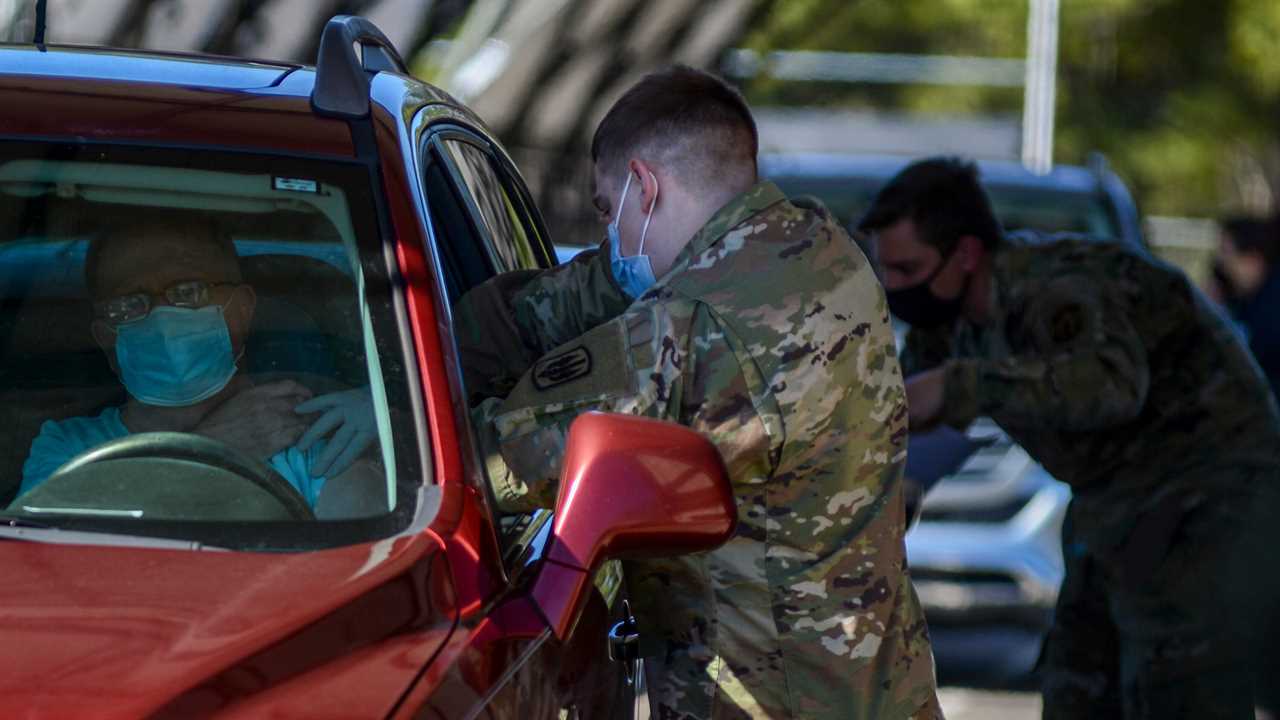
WASHINGTON — In a civilian-controlled military, the rules are often different for those in uniform. Now, those differences extend to vaccinations.
On Thursday, President Biden announced that all federal employees and on-site contractors must be vaccinated against the coronavirus, or be required to submit to regular testing and other measures.
The new requirement would extend to the 766,372 civilians working for the Defense Department, but not to 1.3 million active-duty service members, even though many troops and civilians work side by side.
Mr. Biden said he was directing the department to “look into how and when they will add Covid-19 to the list of vaccinations our armed forces must get,” the first time he has suggested a potential mandate for active-duty troops. But he stopped well short of saying he would use his powers as commander in chief to compel service members to get vaccines not yet fully approved by the Food and Drug Administration by issuing a waiver.
The military sits firmly at the center of an escalating debate over vaccine mandates as Mr. Biden and other officials struggle to get ahead of the Delta variant sweeping through the nation.
Members of the military are regularly given vaccines, and unvaccinated service members are sometimes not allowed to deploy abroad and face other restrictions. But as a political matter, forcing vaccines on the military is all but certain to set off a firestorm among Mr. Biden’s critics.
Many conservatives have suggested that Mr. Biden is making the military too “woke” and have warned that forcing vaccines on troops would be a bridge too far. The White House was already taken aback, some military officials said, by the blowback to its door-to-door vaccine information campaign and has since treaded carefully on the mandate issue, especially as it would apply to troops.
Military commanders and doctors have become increasingly frustrated by their lack of tools to increase vaccine uptake among troops, as they warily eye rising infection rates.
Younger troops have been most hesitant to get the shot, calculating that their symptoms would be mild if they caught virus. But the Delta variant has been hitting younger patients, and with more force.
“From Day 1 we are all about readiness,” Rear Adm. Bruce L. Gillingham, the surgeon general of the Navy, said in an interview on Thursday. “My advice is that when it is licensed, we should mandate it. I have been forceful. I am not going to get ahead of chain of command, but I do think there is tremendous value” in doing what can be done to prevent transmission aboard ships and in other installations, Dr. Gillingham said.
Latest Updates
- The Justice Dept. tells Texas governor his new Covid rule restricting migrant transports violates federal law.
- The C.D.C.’s decision on masks rests on new data showing the Delta variant thrives in the nose and throat.
- Here are the details from Biden’s latest push to spur vaccinations.
As of this week, nearly 70 percent of active-duty troops have had at least one shot. Nearly 74 percent appear to be fully vaccinated, according to the latest data from the Pentagon, but officials say the number drops precipitously when members of the National Guard and Reserves are included. Just 39 percent of the civilian employees of the Defense Department have been fully vaccinated.
National Guard members can be ordered to take vaccines by state leaders; this week, California Guards members were told that they must get vaccinated by early August or face regular testing, as part of Gov. Gavin Newsom’s broader mandate for state workers.
“The California Military Department, which includes the California Army and Air National Guard and the California State Guard, will fully comply with and implement the governor’s directive on regular Covid-19 testing for those not vaccinated and vaccination verification of those who are,” said Lt. Col. Jonathan M. Shiroma, a spokesman for the Guard, which was crucial to the state’s vaccine effort this spring.






